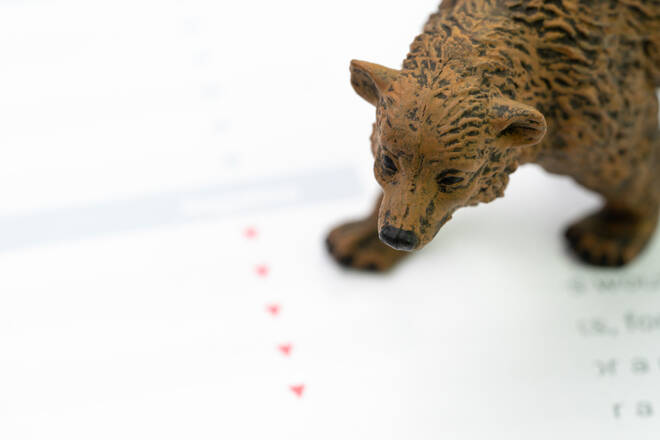Multitrillion Dollar Intervention Fails to Calm Investors
By:
We are now seeing unprecedented policies by authorities across the globe on a daily basis
Countries are shutting down their borders, governments are taking drastic approaches to limit the impact of the virus spread on their economies and central banks are using all their tools to calm financial markets. However, none of these measures seem to be calming investors’ nerves.
With fears over the spread of coronavirus intensifying, it’s reasonable and justified to see risk assets being sold aggressively. After all, the consequences on the global economy and corporate earnings may be enormous, depending on the duration of the pandemic. People are afraid they will lose their jobs, won’t be able to pay their bills and so are cutting expenses on all non-essential needs. But what’s interesting in the current market turmoil is that even the safest assets in financial markets, US government bonds, are being sold-off.
In a bear market, traditionally investors have flocked to US Treasury bonds which historically have been inversely correlated to stock markets. In fact, we did see tremendous inflows into Treasuries at the beginning of the coronavirus outbreak. From mid-February to early March, yields on the 10-year Treasury bond declined by 80% to reach a record low of 0.32%. However, over the last several days this pattern has changed, with the sell-off in US Treasuries intensifying, especially on Tuesday and Wednesday with yields now standing at 1.25%.
This kind of market behaviour is scary. It shows that investors are selling whatever they can to raise cash and this also explains why the Dollar is soaring to record highs. Investors are clearly being forced to build their cash reserves in order to survive a prolonged period of the current pandemic.
The Federal Reserve and other major central banks are using all their tools to provide liquidity to markets. Whether it’s through cutting rates, currency swap lines, repurchase operations or asset purchases. Unfortunately, none of these tactics are preventing the hoarding of Dollars, as the huge amount of Dollar debt that companies need to fund gives rise to a “Dollar squeeze”.
This kind of market behaviour is likely to remain if the growth in virus infections remains high. That’s going to be problematic, especially for Asia, where Dollar dominated debt has reached record highs over the past several years. The risks of the global health crisis transforming into a debt crisis is extremely high and that would lead to an even worse crisis than that seen in 2008.
At this stage, it seems only one solution can prevent an ugly financial crisis – that is, finding a cure to the coronavirus and very quickly – which we all hope can be achieved very soon.
Disclaimer: The content in this article comprises personal opinions and should not be construed as containing personal and/or other investment advice and/or an offer of and/or solicitation for any transactions in financial instruments and/or a guarantee and/or prediction of future performance. ForexTime (FXTM), its affiliates, agents, directors, officers or employees do not guarantee the accuracy, validity, timeliness or completeness, of any information or data made available and assume no liability as to any loss arising from any investment based on the same.
About the Author
Hussein Sayedcontributor
Hussein is FXTM Chief Market Strategist. He published on Market Watch, CNN Money, BBC, Skynews, The Independent, Business Insider, FT, the Guardian, AFP, Reuters, Zawya, Khaleej Times, Gulf News, and others
Advertisement
